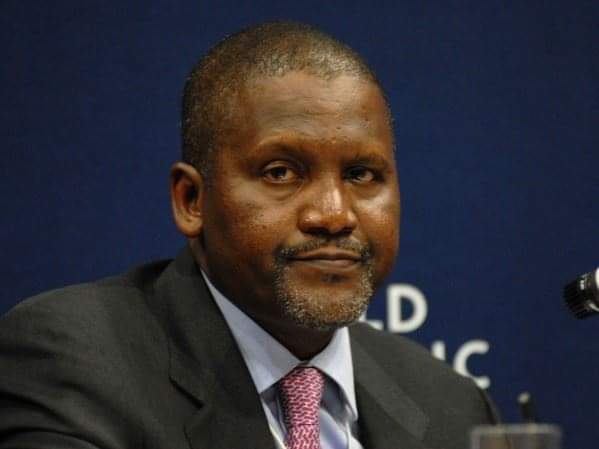Seeking to strike an edge over other key players in Nigeria’s lucrative oil sector, Dangote Group has proposed a provision in the Petroleum Industry Bill (PIB) that will ban the importation of oil by companies without refining licenses.
Dangote Group has been constructing a facility that will have up to 10.4 million tonnes in petrol refining capacity per year in Lagos. Its founder and promoter Aliko Dangote claimed the development would help spur investments in Nigeria’s oil and gas industry, but he has now moved to corner most of the deals for himself by lobbying lawmakers and federal authorities to insert a clause that will make it difficult for other industry players to import refined products once his own facility comes on stream.
Aliyu Suleiman, a chief strategist at Dangote, discussed the anti-competition approach during a visit by members of the National Assembly’s Joint committee on PIB to the project site
The group proposed that only companies with licences to refine should be allowed to import fuel whenever demands surpass available fuel or when a refinery is undergoing maintenance.
“Nigeria is exceptional in being a major oil producer with near-zero refining capacity. Though the Dangote Refinery will help address this, there could be periods when petroleum products may need to be imported, such as when the refinery is undergoing turnaround maintenance or if demand grows to exceed capacity,” the official said as reported by Punch on Sunday morning.
Dangote also recommended that the volume of fuel that will be imported should be distributed according to what each refinery produces.
“To support this, the licence to import any product shortfalls should be assigned only to companies with active refining licences,” the company said. “Import volume to be allocated between participants based on their respective products in the preceding quarter. Such import will be done under the DSDP scheme.”
Dangote also claimed without suggesting any credible source that imported fuels are of low quality and are dangerous to health, saying it “also impacts performance and the durability of vehicles, especially high-performance cars. ECOWAS members (including Nigeria) signed a declaration in February 2020 to adopt cleaner fuels.”
Giving suggestion on safeguarding the health of consumers, Dangote said imported petroleum products must conform to the Afri-5 specification (50 ppm sulphur) in line with the ECOWAS declaration of February 2020 on adoption of the Afri-Fuels Roadmap.
Although lawmakers did not immediately commit to implementing Dangote’s wishes, the company has a longstanding influence over policymakers and widely seen as a formidable lobbyist on the corridors of power. Should its proposed clause be granted, Dangote stands to become the largest importer of petroleum products in Nigeria.
Senate President Ahmad Lawan
Under the policy, Dangote may also earn significantly from an opaque arrangement that would allow it to sell its products to other African countries while failing to meet local demands.
Analysts warned that an artificial scarcity may be imposed on the company under the arrangement, allowing Dangote to import the same products that he had previously exported to another affiliate in another African country at international market prices and in U.S. dollars.
But financial and petroleum experts Jide Ojo and Bala Zaka said it was a good policy that would accord a deserving advantage to institutional investors who have expended so much cash and manpower.
“We have people we call briefcase or speculative investors,” Mr. Zaka said. “They will struggle to get the licence but their long-time intention is to call the UK or U.S. and talk to their friends who have refineries there to be sending them these refined petroleum products and when their friends send to them, they look at the margins they make, they will just keep importing and making their margins.”
He said there are also companies like Dangote that have invested in physical structure and manpower that should be “encouraged” with friendly policies.
Similarly, Mr. Ojo said Dangote’s idea would promote backward integration in the event of a shortfall.
“Even if Dangote refineries come on board, in the event of a shortfall, which may arise as a result of maintenance on the refineries, there will be turn around in production. In order to make up for the shortfall, it is good to allow only licensed refineries to be the ones to import,” the analyst said.
Both experts, however, said Dangote should not be allowed to become a monopoly in the manner of the state-run NNPC, although it remained unclear how the conglomerate would be prevented from holding a monopoly if the controversial clause makes it into the PIB


